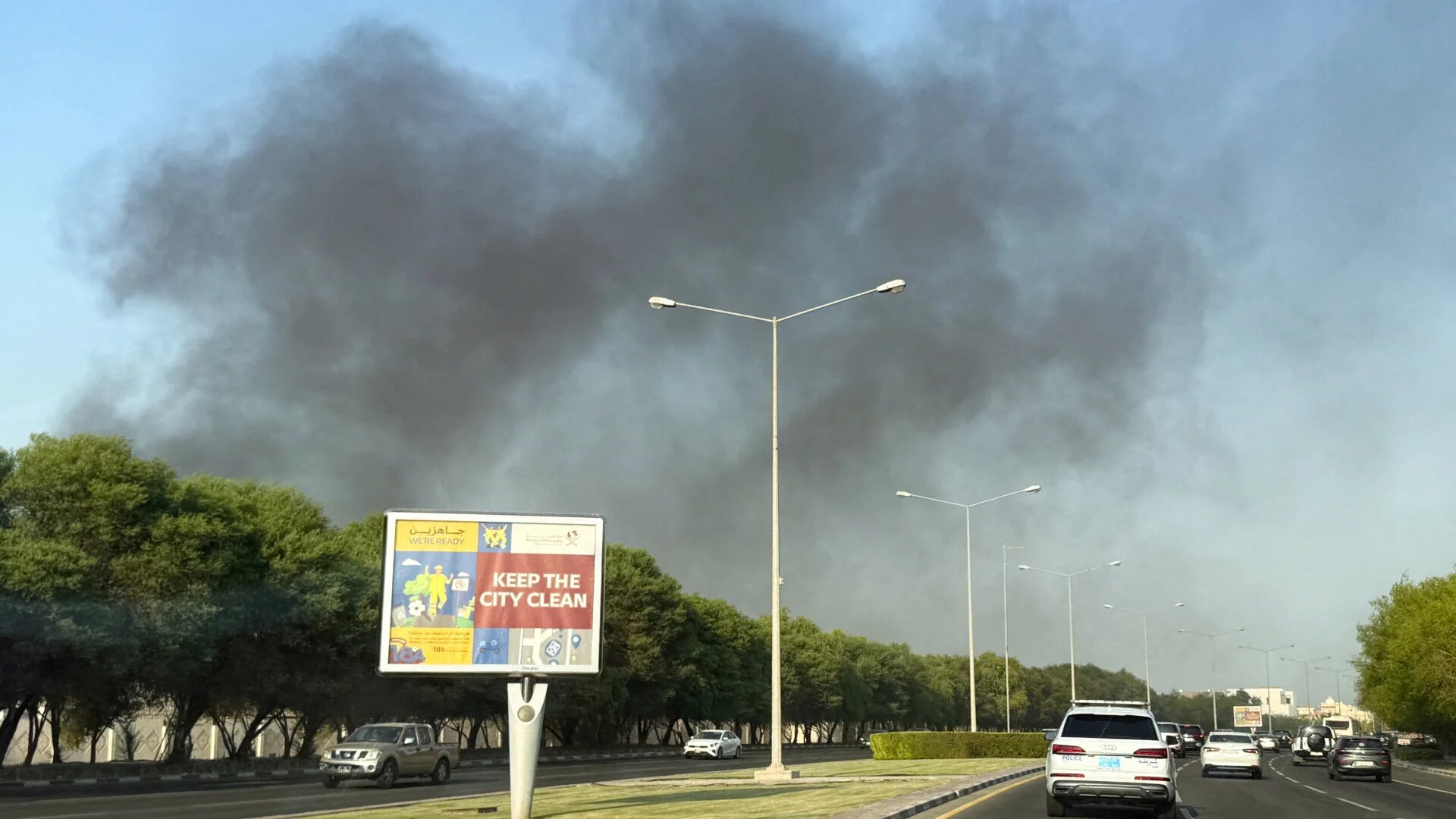Top Stories
Israel Strikes Qatar: A Stark Warning for Arab States

Israel’s recent strike on Qatar has heightened tensions in the Middle East, raising alarms among Arab nations about their security. The attack, which targeted family members of Hamas officials and resulted in casualties, has been condemned by Qatar as a “cowardly, criminal assault.” This incident underscores a critical reality: no nation in the region can consider itself safe from Israeli military actions, regardless of its diplomatic ties or perceived neutrality.
The Context of the Attack
Qatar, a small nation with significant influence, has historically maintained a friendly relationship with both the United States and various regional players, including Israel. It hosts the largest American military base in the Middle East and has invested hundreds of billions of dollars into the US economy. Just last month, Qatari officials engaged in mediating ceasefire negotiations involving Israeli and Palestinian factions.
Despite these diplomatic efforts, the recent attack serves as a stark reminder of Israel’s aggressive posture in the region. It has long pursued a policy of territorial expansion and military dominance, often ignoring international laws and norms. In August, Israeli Prime Minister Benjamin Netanyahu reaffirmed ambitions for a “Greater Israel,” which extends from the Euphrates River to the Nile. This rhetoric aligns with a broader pattern of violence and occupation that has characterized Israeli actions for decades.
The Impact on Regional Dynamics
The strike on Qatar is not an isolated incident but rather part of an ongoing campaign of aggression. Over the past two years, Israel’s military operations have intensified, particularly in Gaza and the West Bank. Since October 2023, more than 1,000 Palestinians have been killed, with extensive land confiscation and demolitions occurring at an unprecedented scale.
Critics, including Israeli human rights organizations, have categorized these actions as genocidal, pointing to systematic attacks on civilians and civilian infrastructure. The Israeli military’s tactics reportedly include a “100:1 ratio” approach, allowing the killing of over 100 civilians to target a single individual. This strategy has been explicitly condemned as it seeks to maximize civilian casualties.
The attack on Qatar also raises significant questions regarding the effectiveness of American military presence in the region. Despite hosting a major US military base, Qatar found itself vulnerable to an attack by a supposed ally. Reports indicate that the Trump Administration had prior knowledge of the strike, which further complicates the relationship between Qatar and the US.
Arab nations now face a critical juncture. The passivity exhibited by many Arab governments in the face of Israeli aggression has fostered an environment where such strikes can occur with relative impunity. The recent attack should compel Arab leaders to reconsider their approaches to Israel and the United States.
As evidenced by the recent agreement where Egypt pledged $35 billion to Israel over the next 15 years, some Arab states continue to deepen their ties with Israel, seemingly ignoring the threats posed to their own sovereignty.
The ongoing violence and the lack of a unified Arab response may embolden Israel to act with even less restraint. The question remains whether Arab countries will finally confront the reality that they lie within the crosshairs of Israel’s military ambitions.
Future Implications
The implications of this attack extend beyond immediate military concerns. It may prompt Arab nations to reassess their alliances and consider the potential for collective action against Israel. The option of severing ties with Israel or leveraging their connections with Washington could emerge as viable strategies for addressing regional security concerns.
In light of the recent events, Arab states must grapple with difficult decisions: Will they continue to adopt a passive stance, or will they mobilize in defense of their sovereignty? The attack on Qatar serves as a stark reminder that alliances and diplomatic negotiations do not guarantee protection.
As the situation develops, one undeniable truth stands out: if Israel is not confronted, every nation in the region could find itself a potential target. The need for a cohesive and decisive response from Arab nations has never been more urgent.
-

 Entertainment3 months ago
Entertainment3 months agoAnn Ming Reflects on ITV’s ‘I Fought the Law’ Drama
-

 Entertainment4 months ago
Entertainment4 months agoKate Garraway Sells £2 Million Home Amid Financial Struggles
-

 Health3 months ago
Health3 months agoKatie Price Faces New Health Concerns After Cancer Symptoms Resurface
-

 Entertainment3 months ago
Entertainment3 months agoCoronation Street’s Carl Webster Faces Trouble with New Affairs
-

 Entertainment2 weeks ago
Entertainment2 weeks agoCoronation Street Fans React as Todd Faces Heartbreaking Choice
-

 Entertainment3 months ago
Entertainment3 months agoWhere is Tinder Swindler Simon Leviev? Latest Updates Revealed
-

 World2 weeks ago
World2 weeks agoBailey Announces Heartbreaking Split from Rebecca After Reunion
-

 Entertainment4 months ago
Entertainment4 months agoMarkiplier Addresses AI Controversy During Livestream Response
-

 Science1 month ago
Science1 month agoBrian Cox Addresses Claims of Alien Probe in 3I/ATLAS Discovery
-

 Health5 months ago
Health5 months agoCarol Vorderman Reflects on Health Scare and Family Support
-

 Entertainment4 months ago
Entertainment4 months agoKim Cattrall Posts Cryptic Message After HBO’s Sequel Cancellation
-

 Entertainment3 months ago
Entertainment3 months agoOlivia Attwood Opens Up About Fallout with Former Best Friend





















